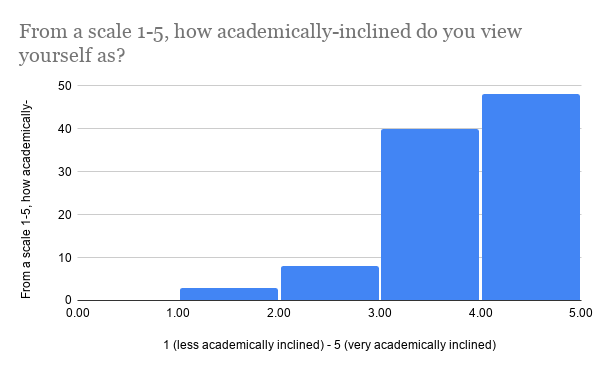High school students cheat more in online school

Niki* (12) opened her vocabulary test in February for her English class and immediately switched tabs to a Google document, which was filled with answers for the test. The top of the page began to fill with icons, showing the profiles of her classmates who had also decided to do the same thing. Like an unspoken alliance, the students understand each other’s struggles, cooperating to support one another by various means.
“Whether or not they are using it, it’s available to all of us when we take the quiz,” Niki said. “At first, I knew that the teacher could just open the document and bust all of us for cheating, but that has never happened, so people keep doing it. Cheating, [for me], is like helping. It doesn’t feel like something dirty and terrible to do. I don’t view vocabulary quizzes and things like that as high priority. If it’s a lower priority class, I don’t study for it and save my studying time for harder classes.”
From staying silent about other student’s cheating habits to the collaboration between students, cheating continues as this unspoken agreement persists throughout the student body.
In some situations, the feeling of obligation to reciprocate the favors they received pulls students to continue the habit of cheating.
“If I’m in first period and I’m taking a test, I know someone is going to come up to me [when we were on campus] and ask me [for answers],” Niki said. “And since I’m giving them the answers, I feel like it’s ok for me to get answers. I understand when people asked me, and I felt like if I didn’t do the same I would be a hypocrite.”
This sense of commitment is one of the reasons students continue to cheat. A combination of the high academic standards, fast-paced curriculum, and reputation to be maintained by Westview students, also contribute to students’ decisions to cheat.
“It comes from wanting to get an A no matter what and the fact that I can’t really do all of my school work purely off of academic honesty and studying for all my stuff,” Niki said. “A lot of it seems like busy work, and when you want to learn concepts quickly it’s easier to focus on the bigger concepts and cheat on small homework assignments.”
Niki took AP Chemistry her sophomore year with the intention of impressing colleges and proving to her parents that she was capable of taking a difficult AP course. If given the option between a regular course and a more challenging course, Niki said that taking the challenging route is expected of Westview students.
Along with the expectations placed on Westview students, the fast-paced quarter system makes it difficult for students to keep up. Many students, like Tommy* (11), do not have the time to learn the subjects they are intrigued by, putting their effort towards turning in assignments rather than learning the material.
“I took certain classes that I thought would be more interesting to learn about, but because of the overload of work I was assigned and the limited time I had to complete it, I stopped focusing on the learning aspect and started focusing on the grade,” Tommy said. “I began collaborating with a friend––which we weren’t supposed to do––and getting answers from the internet just to get it over with.”
Additionally, Tommy said he is burdened by the pressure to keep up with his fellow students.

“It makes me feel good that I’m going to a more academically challenging school, but it causes me a lot of stress to keep up with my peers,” Tommy said. “I often feel inferior to my friends in the sense that they are more academically advanced compared to where I am. I find myself comparing their intelligence to mine a lot.”
Niki said that the competitive culture of Westview is a source of pressure students feel, fueling the culture that pushes students to their limits to achieve the above and beyond.
Since the transition from on-campus to online school, students are finding that cheating has become exponentially easier. According to observational psychologist Dr. Carl Pickhardt, students who now have access to the internet right at their fingertips, providing them with a wealth of answers, will most definitely take advantage of this opportunity.
“Students believe that cheating on the Internet will not be found out,” Pickhardt said. “They feel safe from being caught. ”
Niki agrees that the low risk of getting caught cheating makes it irresistible for her.
“[The amount of information online] makes me cheat on things, like easy vocabulary tests, I don’t need to cheat on, just because it is so accessible,” Niki said. “It’s not that you cheat because you don’t know the answer, you cheat to make sure you have the right answer. When you have the opportunity, why not [use it] when you aren’t going to get caught?”
Some students have used this time in online school to cheat without worry of getting caught, to the extent where some have grown dependent upon it. For Tommy, this has been the case.
“I’m scared I can’t be successful in class without [cheating], causing my anxiety to go up,” Tommy said. “I feel like I’ve gone too far to the point where I can’t succeed in the class without using it. It’s a cycle where I cheat to subdue my anxiety at the moment but eventually it contributes to my anxiety long-term. This cycle builds up as I become more anxious and then feel a stronger urge to cheat to calm my anxiety.”
Pickhardt said that Tommy’s situation is the perfect example of how cheating can affect a student long-term.
“If cheating becomes a habit, then the person can come to believe that cheating is the only way they can achieve well enough,” Pickhardt said. “You break any habit, including habitual cheating, by developing a counter habit—in this case, one of honesty that you value more.”
Although cheating may seem the most convenient way to get by in classes, the consequences of cheating can follow a student into their future education and careers, Pichardt said. By cheating, a student has missed out on learning the value of discipline and confidence in one’s own ability, a mindset crucial for success.
“You have cheated yourself out of hard work that strengthens the ability to learn,” Pickhardt said. “Based on a high test score falsely achieved, future educators or employers may presume you know more than you actually do.”
Especially in high school, nurturing our abilities to work hard, discipling ourselves, and succeeding through our own sweat and tears are essential for our future careers, wherever we end up, Pickhardt said.
“No matter how much relief it brings in the short term, long-term costs must still be paid as the student fakes it to make it, and knows that this is so,” Pickhardt said.
*Students names have been changed
For more information, refer to the other two parts of our cheating series.





V0x • Apr 8, 2021 at 11:51 am
Is this is meant to be a surprise to… pretty much anybody?